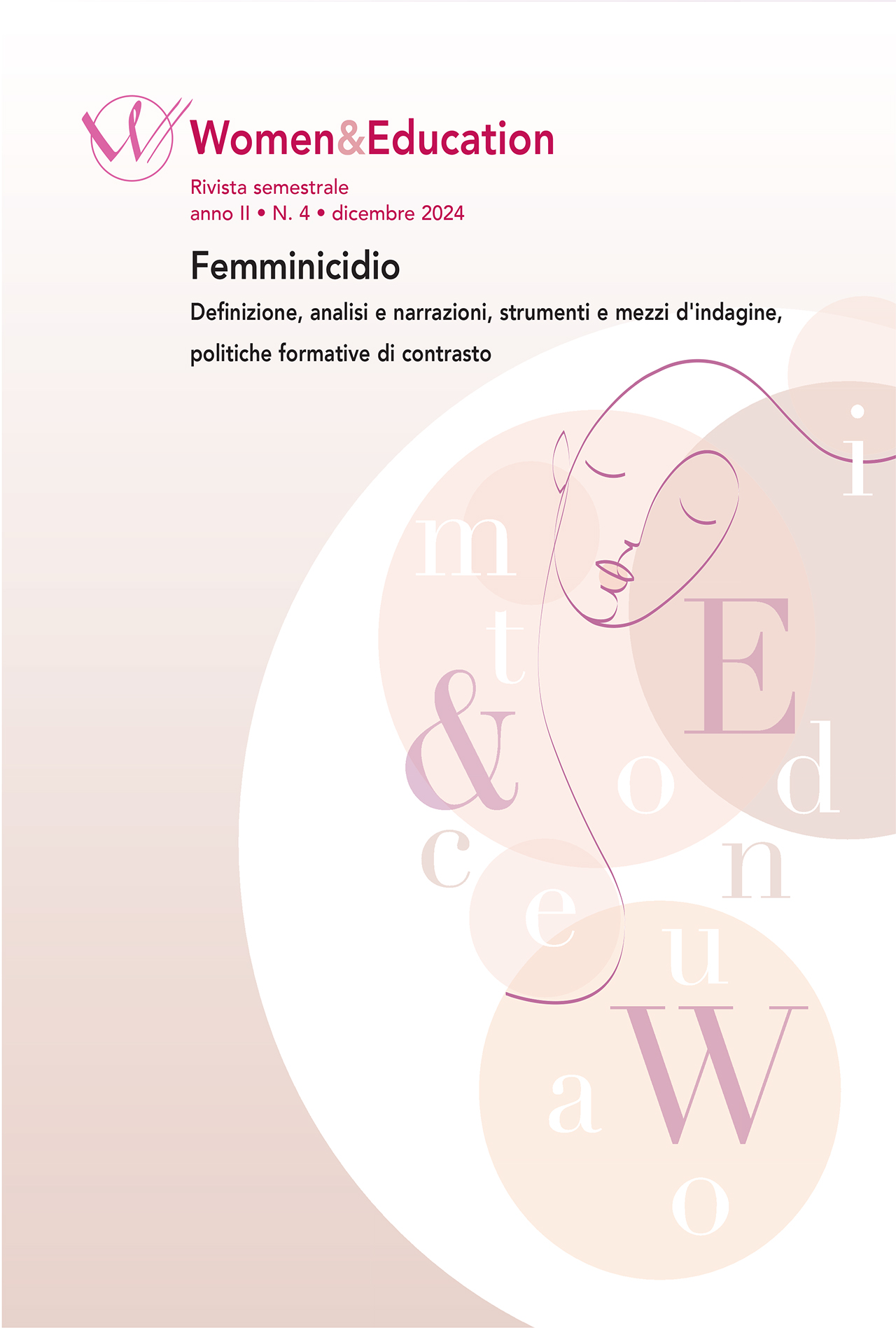Telling oneself to be. Contexts and reflective community practices to counter gender inequalities
DOI:
https://doi.org/10.7346/-we-II-04-24_20Keywords:
Inclusive pedagogy, self-narrative, empowerment, self-determination, BoliviaAbstract
The gradual raising of awareness towards gender studies, and the implementation of new normative measures such as Goal 5 of
the Agenda2030 Achieving gender equality and empowering all women and girls (UN, 2015), still do not seem sufficient to
prevent and address the different forms of gender discrimination, manifestations of violence and inequality in women’s daily
lives, and to ensure their widespread well-being. Previous research and publications have already shown how gender issues require
the implementation of training courses aimed at the recognition, awareness and protection of one's rights (De Angelis, 2017;
2021). In this contribution, within the conceptual framework of inclusive pedagogy aimed at breaking down barriers and promoting
well-being for all and everyone (UNESCO,1994), we intend to present an experience of implementing good community
practices centred on the narrative approach. In line with the UN Resolution 1325 Women, Peace and Security (UN, 2000) and
the Istanbul Convention (EU, 2011), the research objective pursued is to design and implement a series of women's empowerment
interventions aimed at self-empowerment and increased self-efficacy, in order to strengthen self-determination and combat discrimination
and inequalities in everyday life. Here we present the action-research course carried out in Bolivia with a group of
women victims of violence in emotional relationships. The experience proved paradigmatic in exploring the relationship between
inclusion, self-reflection, well-being, and the pedagogical tools of narrative for the emancipation of women.
Downloads
Published
Issue
Section
License
Copyright (c) 2024 Women&Education

This work is licensed under a Creative Commons Attribution 4.0 International License.

